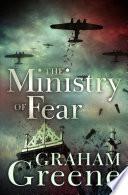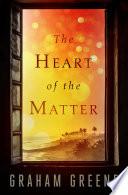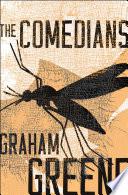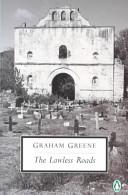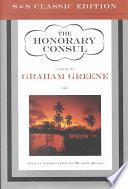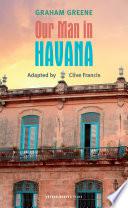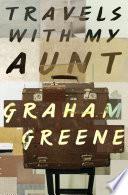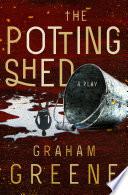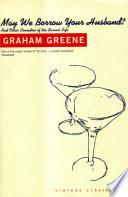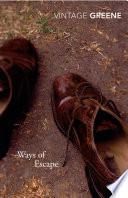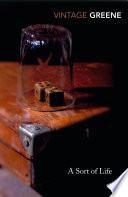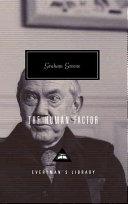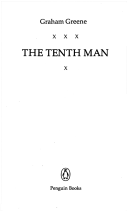“Suffering is not increased by numbers. One body can contain all the suffering the world can feel.”
Source: The Quiet American
Henry Graham Greene , better known by his pen name Graham Greene, was an English novelist regarded by many as one of the leading English novelists of the 20th century. Combining literary acclaim with widespread popularity, Greene acquired a reputation early in his lifetime as a major writer, both of serious Catholic novels, and of thrillers . He was shortlisted, in 1966 and 1967, for the Nobel Prize for Literature. Through 67 years of writings, which included over 25 novels, he explored the ambivalent moral and political issues of the modern world, often through a Catholic perspective.
Although Greene objected strongly to being described as a Roman Catholic novelist, rather than as a novelist who happened to be Catholic, Catholic religious themes are at the root of much of his writing, especially the four major Catholic novels: Brighton Rock, The Power and the Glory, The Heart of the Matter, and The End of the Affair; which have been named "the gold standard" of the Catholic novel. Several works, such as The Confidential Agent, The Quiet American, Our Man in Havana, The Human Factor, and his screenplay for The Third Man, also show Greene's avid interest in the workings and intrigues of international politics and espionage.
Greene was born in Berkhamsted in Hertfordshire into a large, influential family that included the owners of the Greene King Brewery. He boarded at Berkhamsted School in Hertfordshire, where his father taught and became headmaster. Unhappy at the school, he attempted suicide several times. He attended Balliol College, Oxford, to study history, where, while an undergraduate, he published his first work in 1925—a poorly received volume of poetry, Babbling April. After graduating, Greene worked first as a private tutor and then as a journalist—first on the Nottingham Journal and then as a sub-editor on The Times. He converted to Catholicism in 1926 after meeting his future wife, Vivien Dayrell-Browning. Later in life he took to calling himself a "Catholic agnostic". He published his first novel, The Man Within, in 1929; its favourable reception enabled him to work full-time as a novelist. He supplemented his novelist's income with freelance journalism, and book and film reviews. His 1937 film review of Wee Willie Winkie , commented on the sexuality of the nine-year-old star, Shirley Temple. This provoked Twentieth Century Fox to sue, prompting Greene to live in Mexico until after the trial was over. While in Mexico, Greene developed the ideas for The Power and the Glory. Greene originally divided his fiction into two genres : thrillers—often with notable philosophic edges—such as The Ministry of Fear; and literary works—on which he thought his literary reputation would rest—such as The Power and the Glory.
Greene had a history of depression, which had a profound effect on his writing and personal life. In a letter to his wife, Vivien, he told her that he had "a character profoundly antagonistic to ordinary domestic life," and that "unfortunately, the disease is also one's material." William Golding praised Greene as "the ultimate chronicler of twentieth-century man's consciousness and anxiety." He died in 1991, at age 86, of leukemia, and was buried in Corseaux cemetery.
Wikipedia

“Suffering is not increased by numbers. One body can contain all the suffering the world can feel.”
Source: The Quiet American
Pt. III, ch. 2, pg 216
The Quiet American (1955)
Bk. 1, ch. 1
Source: The End of the Affair (1951)
Pt. I, ch. 3, sect. 3
Source: The Quiet American (1955)
“I've caught belief like a disease. I've fallen into belief like I fell in love.”
Source: The End of the Affair
Source: The End of the Affair
“God save us always," I said, "from the innocent and the good.”
Pt. I, ch. 1, pg 15
Source: The Quiet American (1955)
Source: Brighton Rock (1938)
“We forget very easily what gives us pain.”
Source: The Ministry of Fear
“One can't love humanity. One can only love people.”
Source: The Ministry of Fear
New York Times (January 8, 1981)
Source: Ways of Escape
Source: The End of the Affair
“So it always is: when you escape to a desert the silence shouts in your ear.”
Source: The Quiet American
Source: The Power and the Glory
“Life was a series of complicated tactical exercises …”
Brighton Rock (1938)
Pt. III, ch. 3 (1978)
The Human Factor (1978)
“Like some wines our love could neither mature nor travel.”
Source: The Comedians
Source: The End of the Affair
Bk. 1, ch. 3, sct. 2
Source: The Ministry of Fear (1943)
“I measured love by the extent of my jealousy.”
Source: The End of the Affair
“I can never think of you as a friend. You can do without a friend.”
Source: The End of the Affair
“You needn't be so scared. Love doesn't end. Just because we don't see each other…”
Source: The End of the Affair
“Sooner or later…one has to take sides – if one is to remain human.”
Pt. IV, ch. 2, pg 230
Source: The Quiet American (1955)
“I'm tired and I'm sick to death of being without you.”
Source: The End of the Affair
“Indifference and pride look very much alike, and he probably thought I was proud.”
Source: The End of the Affair
“Friendship is something in the soul. It is a thing one feels. It is not a return for something.”
Source: The Heart of the Matter
Source: The End of the Affair
“And when we love our sin then we are damned indeed.”
Source: The Power and the Glory
“I couldn't have thought of her more. Even vacancy was crowded with her.”
Source: The End of the Affair
“There is always one moment in childhood when the door opens and lets the future in.”
Pt. I, ch. 1
The Power and the Glory (1940)
“We'd forgive most things if we knew the facts.”
Source: The Heart of the Matter
“The world was in her heart already, like the small spot of decay in a fruit.”
Source: The Power and the Glory
Source: The Quiet American
“As long as one suffers one lives.”
Bk. 5, ch. 1
Source: The End of the Affair (1951)
Variant: Insecurity is the worst sense that lovers feel; sometimes the most humdrum desireless marriage seems better. Insecurity twists meanings and poisons trust.
Source: The End of the Affair
“There is a point of no return, unremarked at the time, in most lives.”
Source: The Comedians (1966)
Source: The End of the Affair
“Hope was an instinct only the reasoning human mind could kill. An animal never knew despair.”
Source: The Power and the Glory
“You cannot love without intuition.”
Source: The Quiet American
